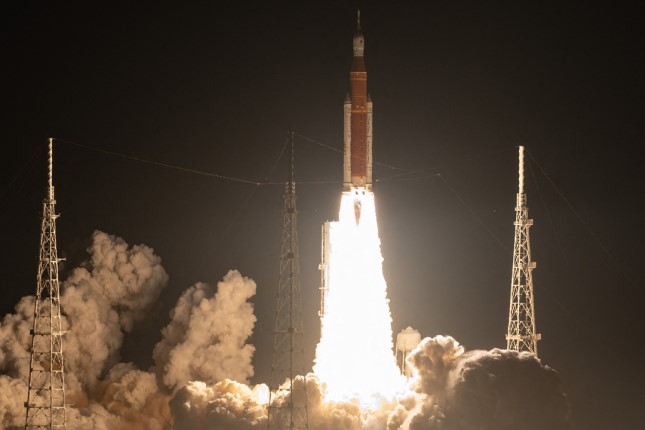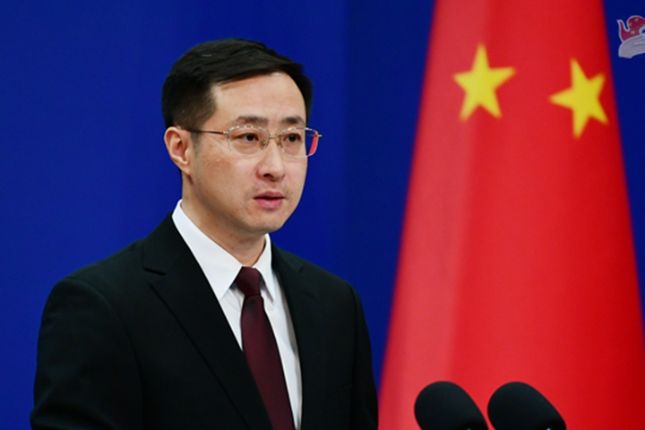After going through a bleak 2022 with no successful space launch, a situation unseen in 18 years, Japan said on Monday that it aims to become the second country only after the US to land astronauts on the moon, adding it will strengthen cooperation with the US to counter China's space endeavors.
Experts pointed out on Tuesday that Japan's putting its astronauts on the moon via another country's spacecraft, while calling itself "second in history" is laughable, warning that if Japan continues to rely heavily on the US, it will eventually lose the ability to walk on its own, thus becoming a puppet of the US.
On Monday, the Kyodo News cited a number of officials, saying that Japan and the US will agree to strengthen cooperation in space during an upcoming summit between Japanese Prime Minister Fumio Kishida and US President Joe Biden in Washington on Friday.
Through the Artemis program led by the US and joined by Japan as well as other countries, both sides will accelerate sending the first Japanese astronaut to the moon, the report said, and the move is "intended to rival China, which is considering building a lunar research base."
According to the Artemis program, a manned spacecraft will fly around the moon in 2024 and land on the lunar surface around 2025. While the US has said that it is committed to helping Japanese astronauts land on the moon by riding on the Artemis missions, the specific time remains unclear as it was labeled "future topics for discussion."
Not to mention when exactly Japan's ambitious plan will come true, experts said that Japan's idea of claiming itself as being "second in history" while relying on another country's technology is laughable, and does not really count.
"A manned moon landing is about acquiring the technology to send your astronauts to the lunar surface, rather than seeking others to help put your men there," Song Zhongping, a space analyst and TV commentator, told the Global Times on Tuesday.
Analysts added that Japanese astronauts are unlikely to be among the first batches to go on the moon, as the Americans will prioritize their own people. "But it also depends on how much Japan is willing to pay for achieving this goal," Song said.
During the meeting, Biden and Kishida are expected to discuss the use of a manned rover that can operate on the lunar surface. Regarding the rover, Japanese automakers are advancing its development by using cutting-edge technology, Japanese media reported.
According to Statista, an online database, the initial budget of the Japan Aerospace Exploration Agency for fiscal year 2022 decreased from 157 billion yen ($1.2 billion) in the previous fiscal year to some 155 billion yen.
Observers said Japan is also trying to hype the "China threat" theory so as to get more funding as the new fiscal year approaches. Even so, they warned Japan that if it continues to rely heavily on the US in the space sector, it will eventually lose the ability to develop its own core technologies and become a subordinate of Washington.
According to The Mainichi, Japan saw zero successful launch of artificial satellite launch vehicles in 2022 for the first time in 18 years.
November 2022 saw a record number of successful launches worldwide, so Japan may lag behind against a booming world space industry, the report said.
Photo: The Artemis I unmanned lunar rocket lifts off at NASA's Kennedy Space Center on November 16, 2022 © AFP.
Source: The Global Times.
































